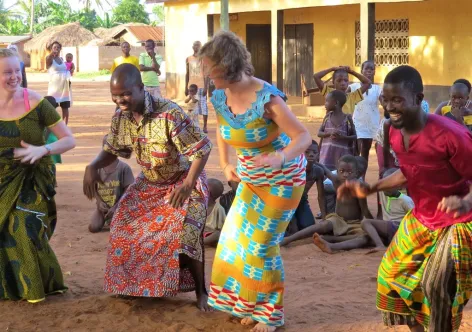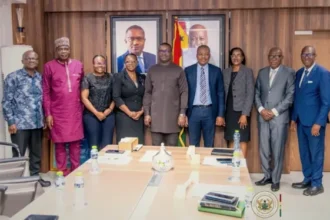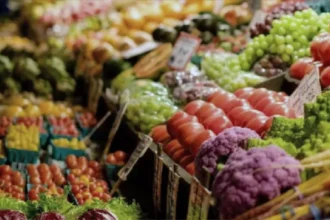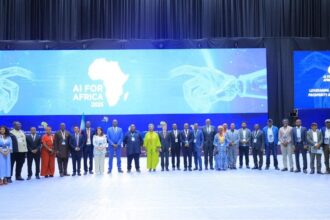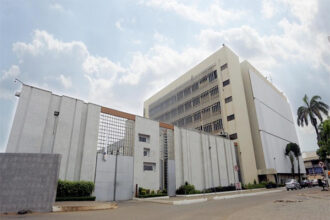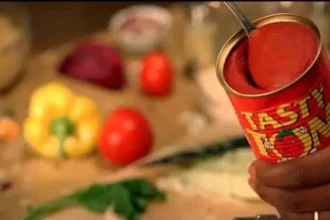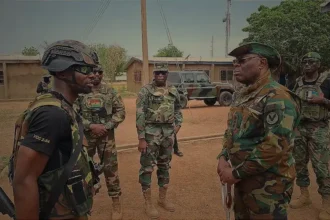Traditional Dance is one of the integral components of African society. There are many interesting and core pillars of African culture and the list of traditional dances in Ghana in this article will take you through the delightful cultural concepts in Ghana.
Consequently, traditional Dance enriches all of our social and ceremonial activities – it constitutes an unflinching part of all the vital facets of our lifestyles.
How well do you know that the varieties of ethnic groups in Ghana have their respective and peculiar types of traditional dance? Permit me to introduce or reintroduce this list of traditional dances in Ghana to you;
- The Adowa,
- The Agbadza,
- The Borborbor,
- The Bamaya,
- The Kple,
- Apatampa and many others.
Let’s take a deep look at them.
-
The Adowa.
The Akans ethnic group in Ghana performs the Adowa dance. They are groups of people that form part of the southern part of Ghana and speak Twi as their native language. The term ‘Adowa’ was named after the motions of the antelope (adowa).
According to the history narrated, once, an Ashanti queen mother named Aberewa Tutuwa fell ill, an oracle was consulted for her healing and it demanded a live antelope. Thereafter, the Asafo (warrior) of Ghana was dispatched right away to obtain the live antelope.
Fortunately, upon their arrival home with the antelope, it was astonishing to see them bouncing and making strong movements. The queen was revived and the people couldn’t withhold jubilation so they began the Adowa dance by joy copying the antelope’s Dance.
They used it creatively to communicate and send emotional signals and feelings amongst both sexes. However, the tone depends on the underlying situation, it is usually performed during festivals, funerals, and marriage ceremonies.
-
Agbadza dance
This traditional dance in Ghana is attributed to the Ewe tribe of the Volta Region. The Agbadza was narrated to have originated from an ancient war called Atrikpui, and it is usually performed during the Hogbestsotso festival.
Basically, there are four motions involved in the Agbadza dance: the Banyinyi, The vutsotsor, The Adzo, and The Hatsatsa. The vutsotsor for instance is performed by men and women with instruments like drums, rattles, and a gong-gong accompaniment.
-
Borborbor dance
This Dance is peculiarly performed by people from the Central and northern parts of the Volta Region of Ghana. It is performed to entertain the guests during the festival of the chiefs and the communities. The dance represents a social dance that allows for individual expression and it is prevalent in the High life Ghanian music genre.
-
The Bamaya
The history behind Bamaya traditional dance in Ghana is that it was first performed in the early 19th Century to mark an end to a serious drought that befell most parts of the Dagbon states in the Northern Region during that period.
Moreover, this dance is also known as a “rain dance.” At first, only women performed the Bamaya, but recently men are no longer found wanting in the dance. Once dressed like women, they dance it perfectly.
The Bamaya crew comprises a lead dancer, other dancers, and drummers who sometimes serve as chorus singers and sing along with the dancers.
Furthermore, the Dance’s moves are enriched with lots of metaphorical meaning. Here, the dancers move quickly and rhythmically, twisting their waists numerous times as they dance around the drummers.
Then, the dancers always embellish their waists and chins with beads and cymbal bells, making sounds as they shake and pound their feet.
-
Kple dance
This dance is typically performed during the Homowo celebration in late August and early September. The priestesses perform this ritual dance in shrines throughout Greater Accra. The Dance is believed to assist the people to communicate with the gods and bring favours to them.
-
Apatampa dance
This dance is performed by the Fanti people of Ghana. The theme of the Dance was narrated to have originated from an ancient occurrence in Ghana in which a giant attacked and killed the Fante men late at night.
As described, the giant fought the last man one night, a woman then interrupted and danced skillfully to divert everyone’s attention away from the fight. She received an accolade for breaking up the fight (apata ampa in Fante).
Benefits of traditional dances in Ghana to society
Although we already know the basic benefit of traditional dance to social life in Ghana. However, it’s good to deeply describe how it helps society at large.
Traditional dance in Ghana is an amazing art form that enhances and promotes creativity, critical thinking, and a healthy mind and bodies. Additionally, traditional dances in Ghana help in uniting people of different ethnic groups.
Although dance types may vary across the country, dance as a whole is universal because most human movement is universal. When people from different ethnic groups meet, they will be able to understand each other through metaphoric and non-verbal communication through the dance. Ultimately, dance triggers inspiration; Since dance is a form of art, and just like all forms of art, conveys a message. Many of the messages that the dances express inspire.
Inspirational messages can uplift a community or society as a whole, they create motivation for people to stride the tide of turbulence perfectly. For instance – a choreographer can innovate a dance about overcoming an illness that can resonate deeply with some people and be purposeful for an observer who is going through similar troubles.
More importantly, there are widely known and evident health benefits of traditional dances in Ghana. It is a recommended and great form of exercise which gets your body parts moving a lot but is also very fun. There are even exercise programs classes, such as Zumba, that infuse dance movements.
“Dance as the narration of a magical story; that recites on lips, illuminates imaginations and embraces the most sacred depths of souls.” –Shah Asad Rizvi
Traditional dances essentially reflects the Ghanaian culture and serves as a symbol of identity.


